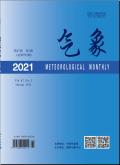气象2024,Vol.50Issue(3):331-343,13.DOI:10.7519/j.issn.1000-0526.2023.043001
基于机器学习的热带气旋灾害等级评估模型构建及其活动特征分析
Construction of Tropical Cyclone Disaster Grade Assessment Model Based on Machine Learning and Analysis of Its Activity Characteristics
摘要
Abstract
Tropical cyclone(TC),one of the worst natural disasters in China,has garnered a lot of inter-ests for both its activity characteristics and disaster loss assessment,especially in the context of global warming.In this paper,the combined weighting and k-means clustering methods are used to analyze the spatial and temporal characteristics of TC and its disaster loss in China since 2000.In addition,the disaster grade assessment model of TC based on machine learning algorithm is also constructed.The results show that the frequency of TC landing in China is in a trend of decreasing year by year,but the maximum land-ing wind speed has been slowly strengthening.Guangdong,Zhejiang,Fujian and Guangxi provinces are seriously affected by TC,but overall,the comprehensive disaster index shows a downward trend.Com-pared with the classic RF,SVM and NB algorithms,LightGBM(Light Gradient Boosting Machine)has the best performance in assessing the TC disaster loss,and the accuracy can reach 0.91.Moreover,the disaster-inducing factor is the most critical factor in the assessment model,followed by the disaster preven-tion and mitigation,exposure and vulnerability indicators.关键词
热带气旋/灾害等级评估/机器学习/LightGBM(Light Gradient Boosting Machine)Key words
tropical cyclone(TC)/disaster grade assessment/machine learning/LightGBM(Light Gradient Boosting Machine)分类
天文与地球科学引用本文复制引用
刘淑贤,张立生,刘扬,王维国,杨琨,张源达..基于机器学习的热带气旋灾害等级评估模型构建及其活动特征分析[J].气象,2024,50(3):331-343,13.基金项目
国家气象中心青年基金项目(Q202212)、国家气象中心气象现代化建设专项(QXXDH202226)和国家重点研发计划(2019YFC1510204)共同资助 (Q202212)

